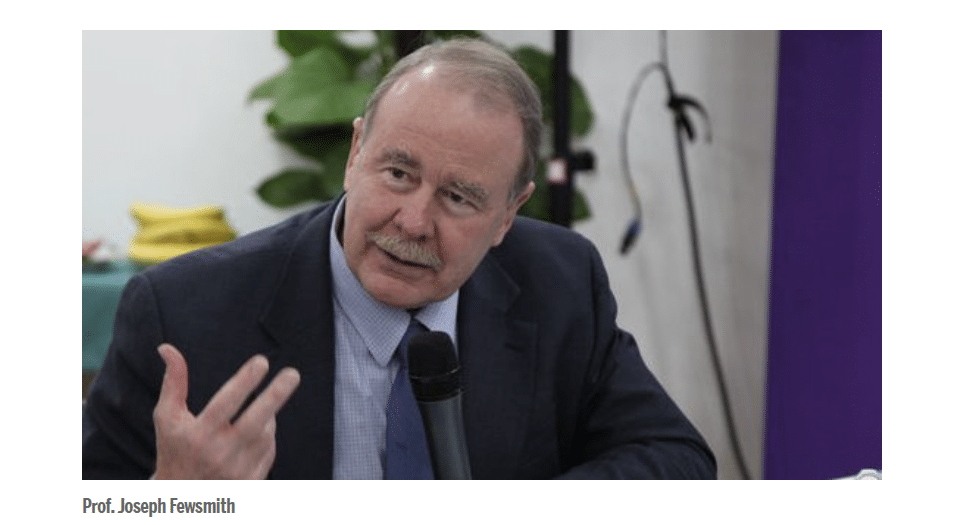How Capable Are the U.S. and Japan of Intervening in a Taiwan Conflict?
For Xi after the Party Congress: More Power, More Challenges
- Opinion
 Tom Watkins
Tom Watkins- 10/13/2022
- 0
Tom Watkins served as the Michigan state superintendent of schools, 2001-05, and president and CEO of the economic counsel of Palm Beach County, FL., 1996-2001. He currently manages TDW and Associates, a global business and educational consulting firm. Watkins is a prolific author and public commentator on the U.S.-China relationship, and has been for nearly 4 decades since his interest was sparked by a 4th grade teacher. Some of his other publications can be found here.
China’s Congress has convened—what will it mean to China and the world as its President Xi is elevated to a third term, which has not occurred since the days of Mao?
The Congress of the Communist Party of China gathered on October 16, 2022. Since the establishment of the People’s Republic of China in 1949, the CCP has been in sole control of the Chinese government—what may have begun with a whisper back then clearly provided the spark that transformed the fortunes of China and its place on the world stage. As Napoleon Bonaparte allegedly said, ‘Let China Sleep for when she wakes she will shake the world’. It seems unfathomable to consider that in 1921 a small group of men gathered in Shanghai to form the CCP—then again, they have fulfilled Margaret Mead’s famous quote, “Never doubt that a small group of thoughtful committed individuals can change the world. In fact, it’s the only thing that ever has.”
The CCP, a movement that was birthed in misery, has accomplished a great deal, including the good, the bad, and the ugly. The same party that has successfully reduced poverty and sparked an economic modernization miracle also produced the Great Leap Forward, Cultural Revolution, Tiananmen Square massacre, and the oppression of Tibetan and Uyghur people today. I have been a participant-observer of China’s rise since my youth – reading, listening, and crisscrossing across the complicated country since 1989. I stood with the students in Tiananmen Square, watching as they demanded an end to government corruption and calling for ‘freedom and democracy.’ Now, I am alternately amazed, astonished, bewildered, disappointed, saddened, angered, and disillusioned in my attempts to understand China today.
What I do see is that many challenges await President Xi when he exits the People’s Congress, and despite the fact he’ll emerge with power perhaps equal to that of Mao himself. The China the world will face from then on will be fundamentally shaped by how President Xi addresses these problems at home — the dramatic political, economic, and social rattling unfolding in his nation today.
Challenges that Xi must contend with—many of China’s own making—include rapidly declining economic stability, its zero-COVID policy, rising inequality, an aging population, youth unemployment, minority oppression, and growing tensions with the United States and other Western powers. China’s economic weakness today is widespread due in large part to Xi’s signature zero-COVID strategy. Domestic consumption, retail sales, industrial output and investment are drying up and China’s economic outlook is troubling going forward. Youth unemployment has risen to a record 20 percent, and China’s one-child policy has contributed to one of the most skewed sex ratios in the world, which studies have since linked to higher crime rates in China.
Xi must also contend with significant headwinds from abroad. Now more than ever, the U.S. has realized it faces a great challenge—reconciling what it believes is right and just with what is indeed possible with a rising and assertive China. It appears that the Biden administration is focused on holding China back. There are multiple areas of competition between the U.S. and China across issues related to the South China Sea, Taiwan, the Artic, and human rights to name a few. But it is technology that will define the future—and, in this context, the Biden administration’s recent actions to stymie Chinese chip production will strike a significant blow.
The West may not like or agree with the ideology behind the CCP, but it will continue to be confronted by it as the 21st century unfolds. Going forward, Xi Jinping and the Chinese Communist Party are tasked with finding the glue that keeps one-fifth of all humanity from coming unhinged. Liking or disliking Communism or the authoritative rule of China may be a luxury the United States can ill afford. The thought of China disintegrating into chaos is nightmarish. At the same time, the thought of an authoritarian regime rewriting the rules of the world is also unthinkable.
China’s Xi Jinping’s ‘dream’ is likely to have cold water splashed on it by China’s demographics and poor internal policy choices. There is a global desire to see the fortunes of the Chinese people continue to improve, but much of the world fears China’s stated aspiration to revise the international order in their authoritarian world view. Nonetheless, we must hope that China can weather its internal crises. A China on the precipice may create more difficulty than a strong and slowly growing China. The best strategy for the United States to compete with China’s rise is not to simply stand in opposition, but to aggressively invest in America and the American people.







